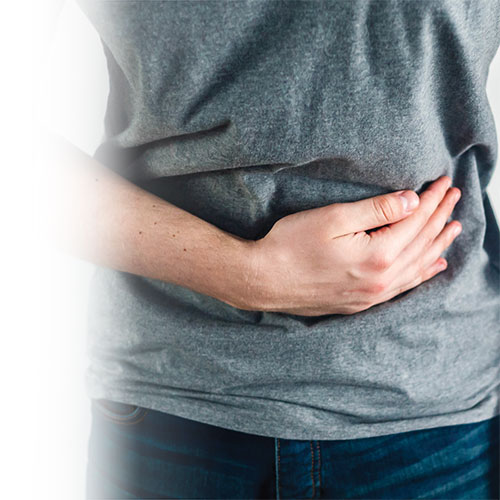Are you inconvenienced by flatulence? Although the digestive tract produces gas naturally, there are simple ways to reduce their significance.
Flatulence is caused by an accumulation of gas in the stomach or the intestine. This can cause bloating accompanied by the expulsion of gas through the anus. Burping is another way to release excessive gas in the digestive tract.
Although gas may be unpleasant, it is rarely indicative of a serious health problem. In fact, it is completely normal to have some. It is estimated that men and women generally pass wind about 12 to 25 times a day. Some people believe that this reflects poor health, but this isn’t the case at all!
The amount of gas eliminated per day depends on several factors, mainly air ingestion and the activity of bacteria in the intestine.
Nutrition
An important source of gas is the consumption of complex sugars that are not transformed into absorbable sugars. When these sugars go through the intestine, they are broken down by intestinal bacteria that use them as food and later produce gas.
| Food rich in complex sugars | ||
|---|---|---|
| Peanut | Cauliflower | Lentil |
| Bagel | Cucumber | Corn |
| Barley | Oat flour | Onion |
| Beet | Sesame flour | Whole grain bread |
| Peanut butter | Soybean | Pasta |
| Wheat | Red kidney bean | Parsley |
| Brocoli | Oatmeal | Pea |
| Carrot | Soy milk | Chickpea |
| Cabbage | Lettuce | Rye |
| Brussels sprout | Fried vegetables | Tofu |
Soft drinks and beer are another major source of flatulence. These products contain a lot of gas, as you can see by the amount of bubbles. Additionally, some gas bubbles are formed while drinking the beverage and are thereby swallowed.
Air ingestion
Air is frequently ingested while eating, drinking and swallowing saliva. This occurs even more often in the presence of certain factors: respiratory difficulties (e.g., nasal congestion), poorly adjusted dental prostheses, habitually eating fast or gulping down food, etc.
Various practices or habits can also increase the amount of air ingested, including:
- smoking
- chewing gum
- drinking with a straw
- sipping small amounts of hot fluids
Health problems
Health issues can sometimes cause digestive symptoms such as bloating and flatulence. This is the case for certain food intolerances, including lactase deficiency (or lactose intolerance). Those who suffer from it are unable to adequately digest lactose, a natural sugar present in milk and dairy products.
The lactose is fermented due to the activity of bacteria in the intestine, causing gas and other symptoms such as diarrhea, abdominal cramps and pain. If you have a lactase deficiency, you can avoid dairy products or take lactase enzyme supplements (these products can be purchased at the pharmacy without a prescription).
Constipation often leads to bloating and flatulence. Intestinal diseases (e.g., irritable bowel syndrome, Crohn’s disease, ulcerative colitis, etc.) or other illnesses (e.g., celiac disease, diabetes, scleroderma) can also be involved.
The prevention of flatulence
Adopting simple habits can reduce the risk of bloating and flatulence:
- Avoid beer and carbonated beverages.
- Avoid talking while eating.
- Avoid chewing gum.
- Avoid food rich in complex sugars.
- Avoid drinking while eating.
- Avoid or reduce consumption of sugar substitutes (sorbitol or fructose).
- Take the appropriate measures to avoid constipation.
- Exercise regularly.
- Learn to better manage stress.
- Quit smoking.
Treatments
In order to treat an intestinal gas issue, it is essential to know the causes and to try to resolve the problem. When gas is minor or transient, it can be prevented or relieved by using over-the-counter medication.
Simethicone
Simethicone (Ovol®, etc.) can be taken during or after meals to prevent or relieve bloating and flatulence. It quickly breaks down gas bubbles trapped in the intestine. Under the effect of this medication, the bubbles merge, helping to eliminate gas more easily.
Enzymes
The alpha-galactosidose enzymes (Beano®, for example) must be taken with the first bite of a meal. These enzymes break down complex sugars that cause gas. Therefore, these enzymes will only be effective when gas is caused by unabsorbed complex sugars.
Don’t hesitate to speak to your pharmacist for additional information about bloating and flatulence.

